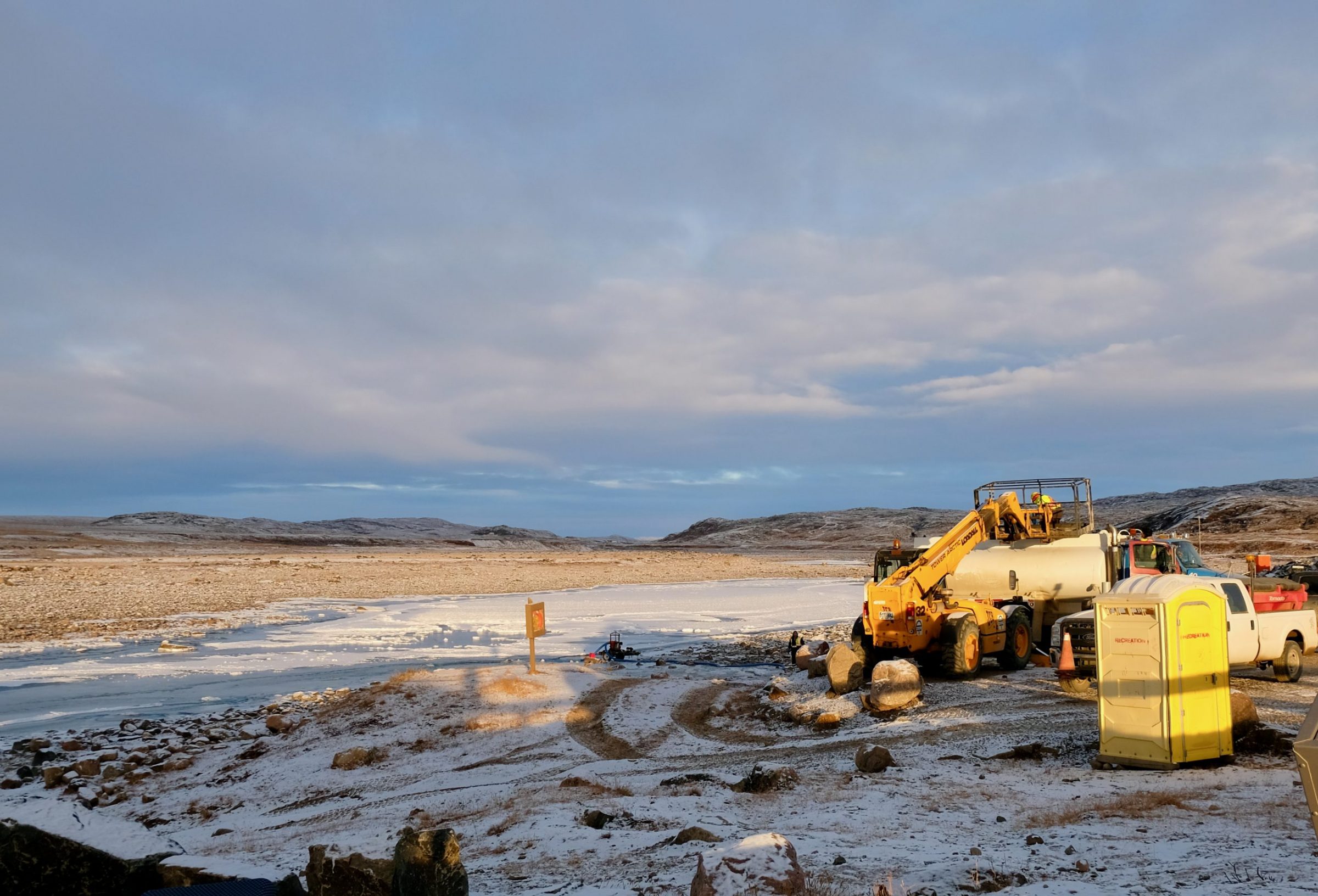Iqaluit asks Nunavut to cover $1.5M in water-crisis expenses
A council-approved water rebate added up to nearly $1M in expenses from Oct. 12 to 31.

Iqaluit city council is asking the Government of Nunavut to cover the city’s expenses for the water crisis that totals just over $1.5 million over nearly a three-week period.
Councillors unanimously agreed Friday to make the application to the territory’s Municipal Request for Assistance Program.
The period the expenses incurred are between when the water emergency officially began on Oct. 12 to Oct. 31.
Rebates for water bills in the city make up a majority of the expenses, at just over $965,000. Other large expenses include approximately $190,000 in water-cleaning services from Qikiqtaaluk Environmental; $43,000 in overtime for city staff; $197,000 for an investigation, supplies and planning from engineering company WSB; and $36,000 for water jugs, pails and lids from Uline.
The city also received $38,000 in funding for water containers from Nunavut Tunngavik Inc. and the federal government.
Mayor Kenny Bell said city council is expected to approve water-bill rebates until the crisis is over.
As well, he said that water expenses the city incurred in October will continue at the current rate but he hopes that will not be for much longer.
Bell added the city submitted its report on Iqaluit’s drinking water to Nunavut’s chief public health officer Thursday, stating that the city’s testing of the water supply met the Canadian health guidelines and that the CPHO will review the information.
Earlier in the week, the city’s chief administrative officer, Amy Elgersma, said the city was awaiting Dr. Michael Patterson’s approval to lift the ‘do-not-consume’ order issued on Oct. 12. That order remains in place until the CPHO lifts it.
But late Friday afternoon, the Nunavut government issued a statement, saying the Health Department “out of an abundance of caution” has commissioned a third party to assess the city’s field investigation report submitted to the chief public health officer on Thursday.
While the Canadian Armed Forces is setting up two reverse osmosis water purification units drawing water from the Sylvia Grinnell River, the military’s assistance in providing clean water is not expected to reduce the city’s costs, Bell said. It will help reduce the Government of Nunavut’s reliance on shipping in bottled water, he added.
Bell also said he expects the Government of Nunavut will need help from the federal government to help cover costs of the water crisis.
“They have limitations on what they can do, just like us,” Bell said.
In 2021, the city’s operating revenues were around $51 million.
On Twitter, Coun. Kyle Sheppard noted the city’s operating budget is less than the Ottawa Public Library’s.
“It’s crazy that we operate on that amount of money,” Bell said.
Bell said the city is carrying forward with an investigation of why the city’s north tank in its water treatment facility got contaminated with hydrocarbons, as well as undertaking an environmental assessment of the land surrounding the tank.
For the future, Bell said the city needs a new water treatment facility.